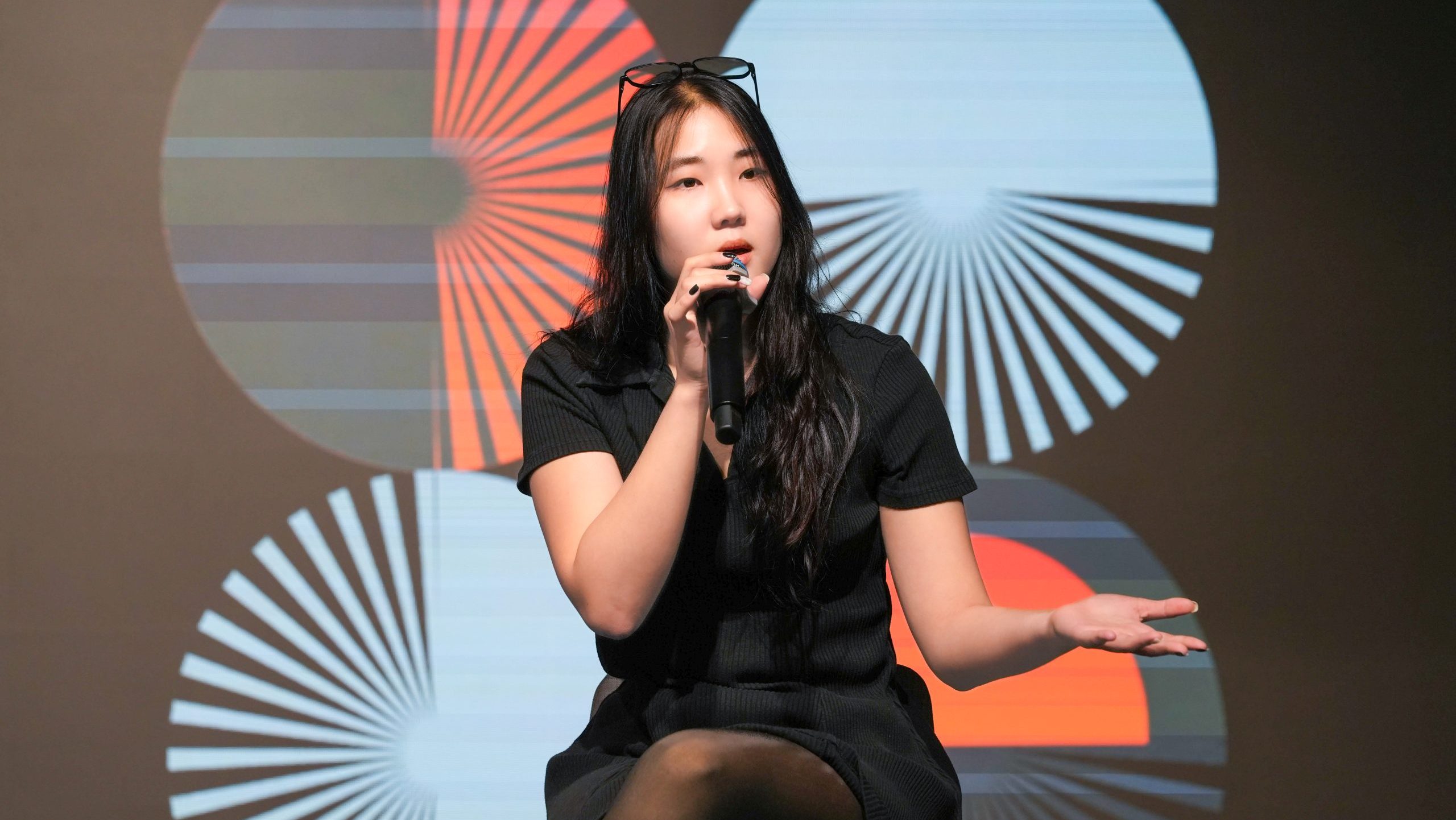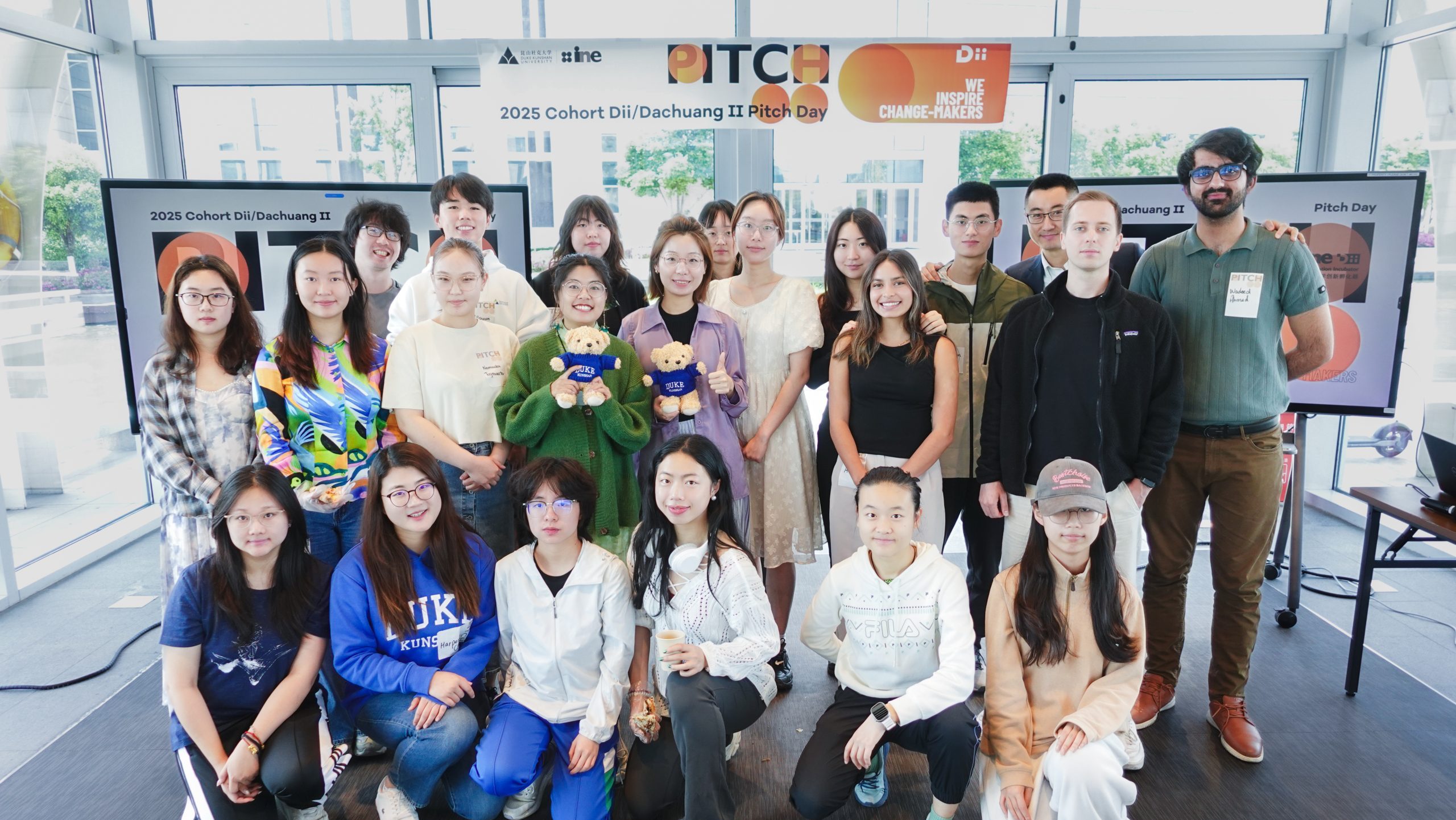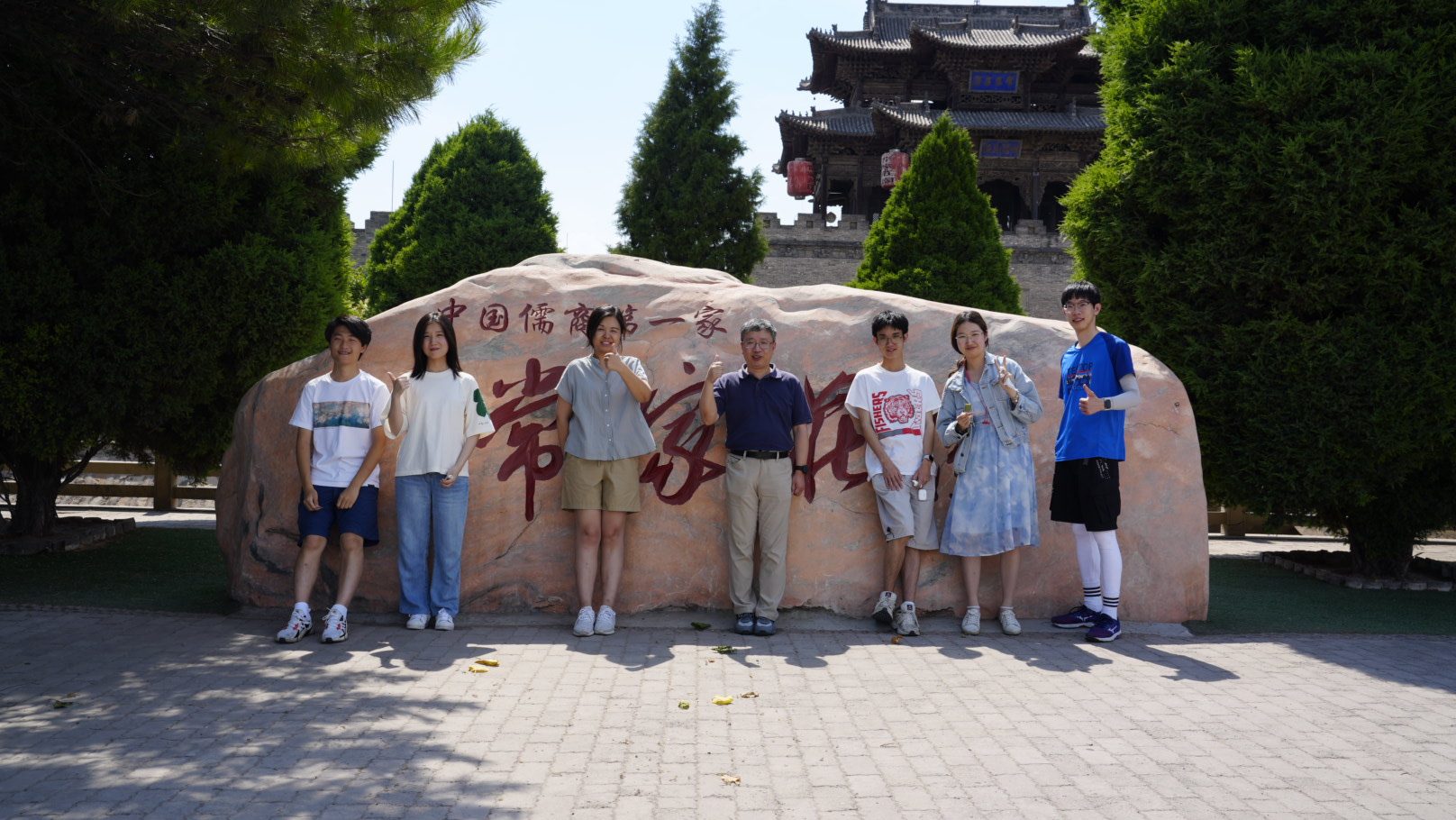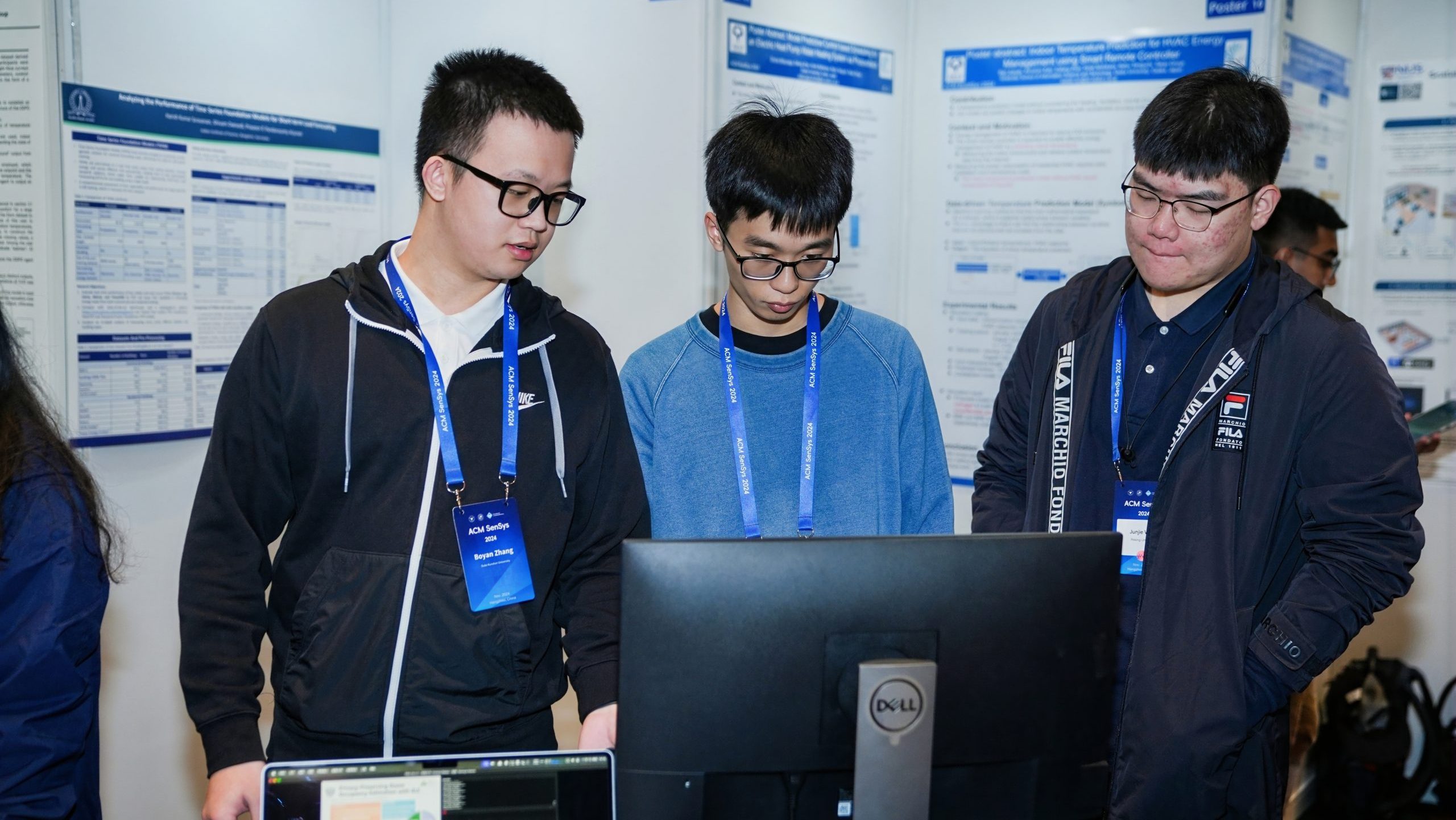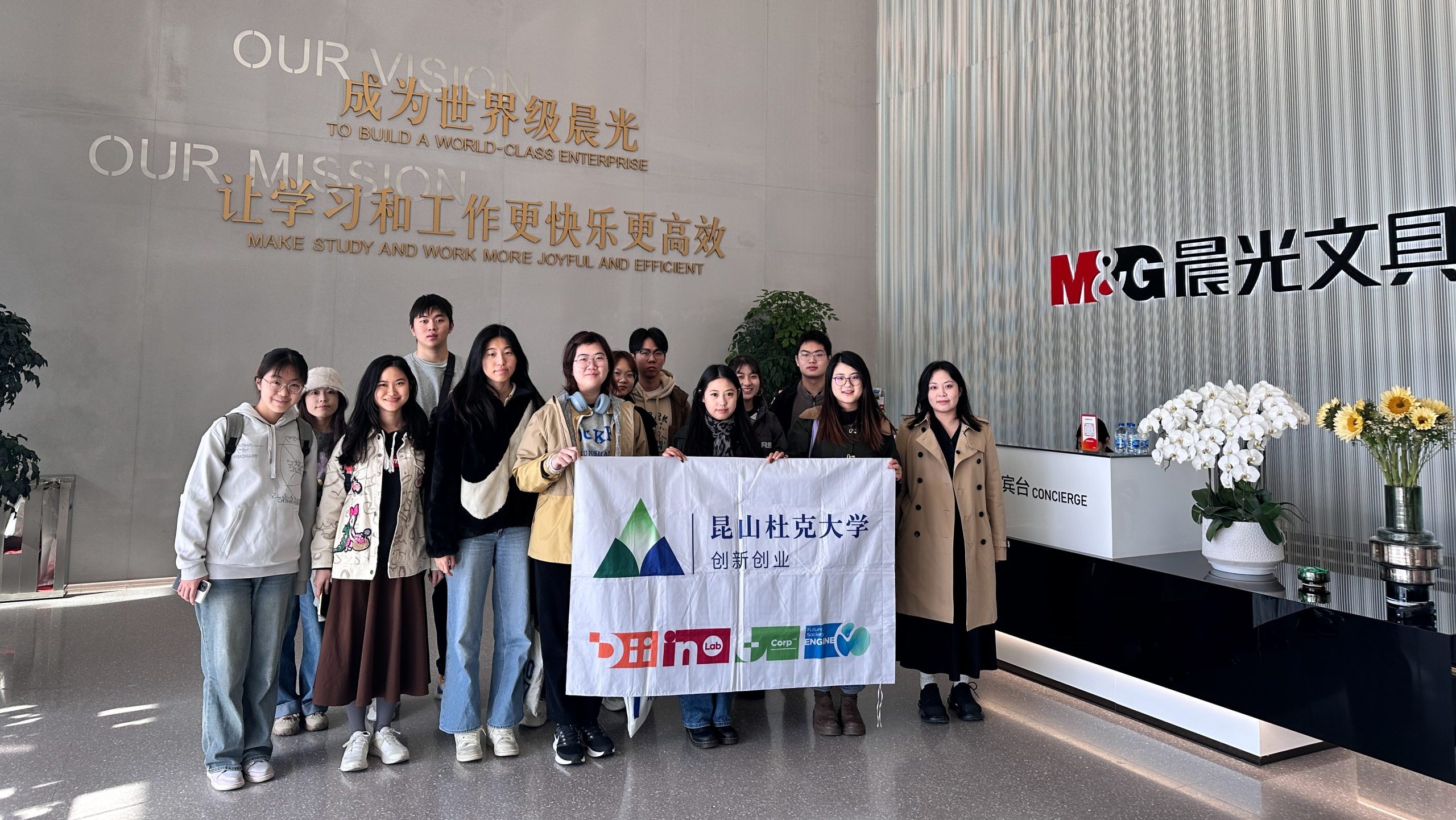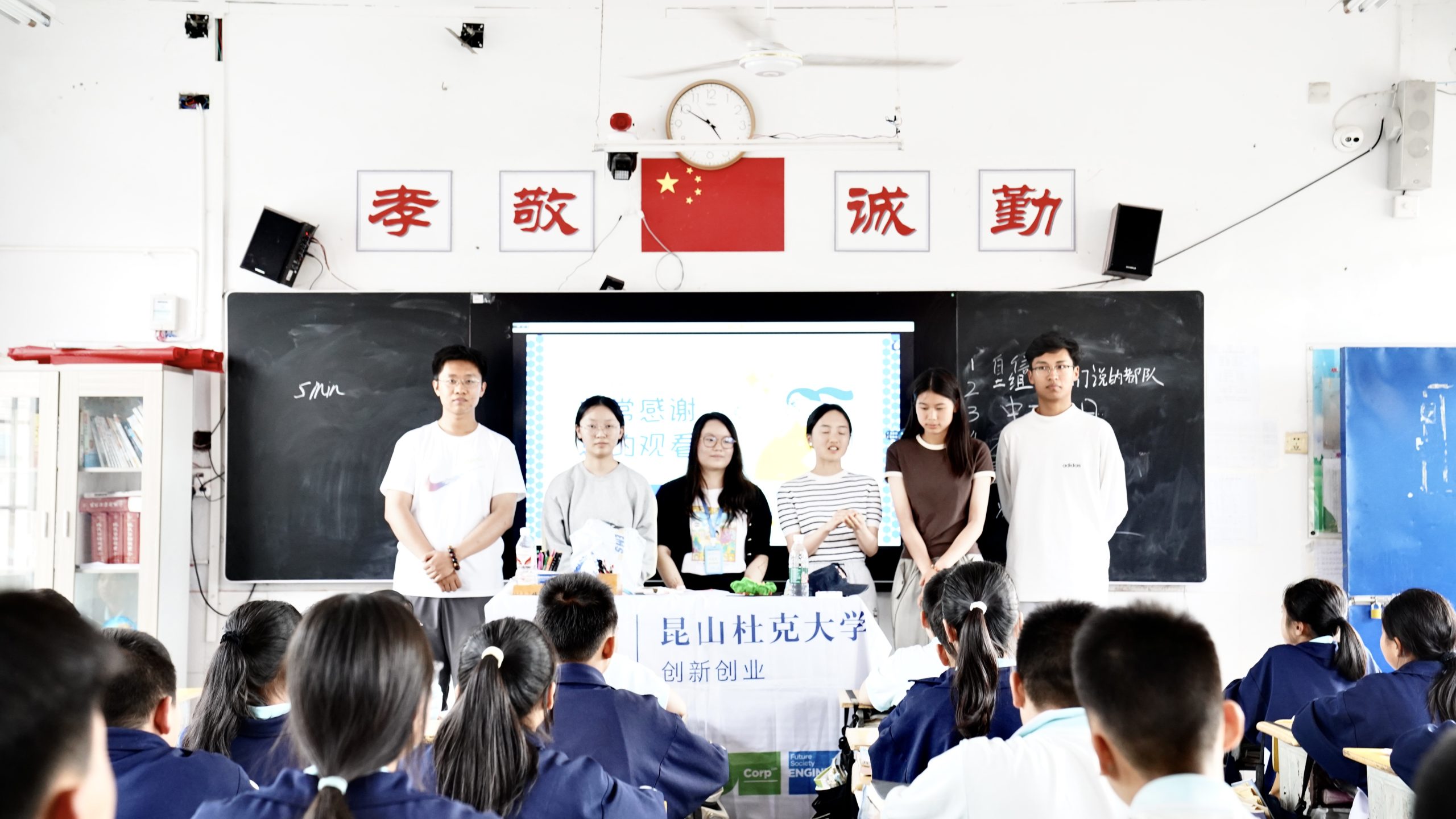Undergraduate students Zhou Hanyang, Yuan Huiqiao, and Zhou Ai from Duke Kunshan University have recently achieved a significant milestone in the “U-Corp @ PEER (AI Research)” project. The team presented their project, “An Exploratory Investigation into the Use of Generative AI in Creative Writing as a Means of Emotional Support for Middle School Students in a County-level Context in China,” at the 69th Comparative International Education Society (CIES) Annual Conference . The team presented their research findings and engaged in in-depth discussions with global scholars at the conference.

The CIES Annual Conference is one of the most prestigious and internationally influential academic events in the field of education, organized by the world’s oldest and largest scholarly society dedicated to comparative and international education. The 2025 conference was held in Chicago, USA, under the theme “Envisioning Education in a Digital Society,” attracting education researchers, policymakers, and practitioners around the globe.
The U-Corp @ PEER (AI Research) project is a key initiative launched in Spring 2024 by the DKU University-Corporation Innovation Lab (U-Corp).

The project centers on leveraging artificial intelligence to drive educational transformation, with a focus on innovative applications of AI technology in writing instruction and emotional expression. It explores the interactive potential of large language models (LLMs) to provide students with guided, personalized writing support. Through AI-powered creative writing workshops, the initiative aims to encourage self-expression and stimulate innovative thinking among students. Employing a mixed-methods approach combining quantitative and qualitative research, the study analyzes the characteristics of emotional expression in writing among county-level middle school students, as well as their experiential differences when interacting with AI. The findings offer practical insights and actionable pathways to advance educational equity.
The conference served as a valuable platform for the project team to engage with global education experts. The team not only received constructive feedback but also broadened their research perspectives, laying a solid foundation for future studies.

I am, in many ways, an inexperienced researcher. Throughout this whole process — from designing the project, conducting interviews, to analyzing the data — I was stumbling, just like pushing Sisyphus’ rock uphill, accepting it will roll back down again.
I’m also not sure I am a firm or determined researcher. Without the students in Yuanling, without Huiqiao and Ai’s support during every step and every late night, without the unwavering help from Harper, Junyi, and the other instructors at InE, without the efforts of our PEER partners who helped secure resources and opportunities for our fieldwork — I don’t know if I would have had the courage to keep pushing the rock again each time it fell.
But this journey has been deeply valuable. It required honesty about the limits of our research. It meant constantly questioning ourselves, again and again, asking what are the boundaries of our materials, and what perspectives were essential to keep in the context of county-level high schools. When we brought these precious student stories to an international academic conference, I felt a sense of responsibility in how we tell them. This was something I also learned from other experienced scholars’ presentations at the conference.
It was luck, yes — but more than that, it was the support we gave each other that allowed me, allowed us, to travel from Kunshan to Yuanling, and then to Chicago. From Yuanling to Chicago, from daylight to the early morning hours — one mountain, one river at a time. Even now, I still feel deeply moved when I think back on this journey. I carry with me a lasting gratitude for the sincerity, strength, and courage I learned from my companions and from the students of Yuanling — a courage to acknowledge the limits of oneself and keep moving forward.

Another year has gone by. I think back to that sweltering, salty, and spicy summer in Hunan—the towering school buildings at the foot of the mountains, and the lively figures around me. I remember the waves of emotion that filled the week. As a researcher, I was excited to finally step into the field I had long observed from afar. Yet, being barely a year or two older than the students there, how much more could I truly understand, and how much more could I genuinely express? They, my dear younger companions, offered me new scopes to look around, and together we kept questioning the world.
In the surging tides of AI and digitalization, is creativity and imagination still beyond measure? How do we, as humans, hold on to purity and trust? It is not a rush to figure out answers. Instead, we turned our attention to the process of communication and interaction, stepping again and again into new rounds of exploration.
This March, our team had the honor of presenting our research at the CIES Conference, learning from scholars with various backgrounds, seeking new anchors for future inquiry, and feeling both deeply lucky and grateful. Over these two years within the DKU InE family, I have been endlessly thankful for the patient guidance of our supervisors, the encouragement and support of my peers, and the journey itself, both arduous and beautiful. We aim to keep seeking and looking outward toward the world.

When I first joined this U-Corp project, I never expected that we would be able to present our achievements at the CIES 2025 conference. Beyond that, the most important thing is that through this process, I gained a basic understanding of conducting social science research. At the very beginning, I knew almost nothing about how to carry out such research. However, from the project’s instructors (Liqi, Harper, Junyi Luo) to the partner (PEER) and my groupmates, everyone was extremely accommodating and patient, offering me a lot of help and guidance, which enabled me to make significant progress throughout this project. Meanwhile, through participating in this project, we have also explored new possibilities for county-level middle school education, bringing our attention to the students in county-level middle schools.



